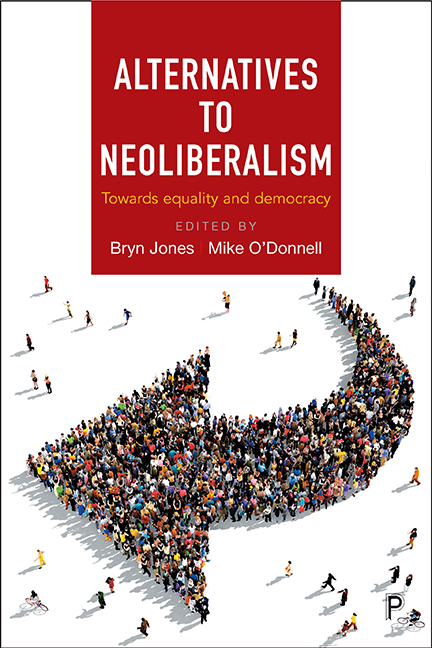Book contents
- Frontmatter
- Dedication
- Contents
- List of figures, tables and boxes
- List of abbreviations
- Notes on contributors
- Acknowledgements
- Foreword
- Editors’ preface
- Introduction: The open-market society and its opponents: an overview
- Part One Alternative paradigms and perspectives
- Part Two Reform within economic and governance restraints: pushing the boundaries
- Part Three Economic and political democracy: restoring the market-civil society balance
- Conclusion: A Brexit from neoliberalism?
- Index
one - Modes of anti-neoliberalism: moralism, Marxism and 21st century socialism
Published online by Cambridge University Press: 05 April 2022
- Frontmatter
- Dedication
- Contents
- List of figures, tables and boxes
- List of abbreviations
- Notes on contributors
- Acknowledgements
- Foreword
- Editors’ preface
- Introduction: The open-market society and its opponents: an overview
- Part One Alternative paradigms and perspectives
- Part Two Reform within economic and governance restraints: pushing the boundaries
- Part Three Economic and political democracy: restoring the market-civil society balance
- Conclusion: A Brexit from neoliberalism?
- Index
Summary
In this chapter, I will begin by considering a number of different genres of anti-neoliberal discourse and politics, and the implicit or explicit alternatives to neoliberalism which they propose, before fleshing out in more detail what I consider to be the most useful alternative to neoliberalism that contemporary radicals could propose. This first section will not offer an exhaustive typology, but merely an attempt to elaborate on some of the different ways in which neoliberalism is criticised from varying perspectives and what the political implications of those variations are.
Moralism versus neoliberalism
Perhaps the most widely distributed mode of anti-neoliberal discourse in the English-speaking world is that which takes an ethical stance against the moral poverty of neoliberal norms and the perceived injustice of its social effects. Moral appeals to ‘social justice’ are typical of religious campaigners, the charitable section and mainstream nongovernment organisations (NGOs). For example, the following comes from
Pope Francis’ first ‘Apostolic Exhortation’ issued in November 2013:
While the earnings of a minority are growing exponentially, so too is the gap separating the majority from the prosperity enjoyed by those happy few. This imbalance is the result of ideologies which defend the absolute autonomy of the marketplace and financial speculation. Consequently, they reject the right of states, charged with vigilance for the common good, to exercise any form of control. A new tyranny is thus born, invisible and often virtual, which unilaterally and relentlessly imposes its own laws and rules. Debt and the accumulation of interest also make it difficult for countries to realize the potential of their own economies and keep citizens from enjoying their real purchasing power. To all this we can add widespread corruption and self-serving tax evasion, which have taken on worldwide dimensions. The thirst for power and possessions knows no limits. In this system, which tends to devour everything which stands in the way of increased profits, whatever is fragile, like the environment, is defenseless before the interests of a deified market, which become the only rule.
Such statements have an obvious rhetorical force, but are always subject to an obvious question as to what moral authority or assumptions they are actually based on.
- Type
- Chapter
- Information
- Alternatives to NeoliberalismTowards Equality and Democracy, pp. 27 - 40Publisher: Bristol University PressPrint publication year: 2017



